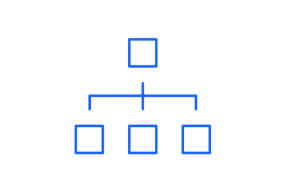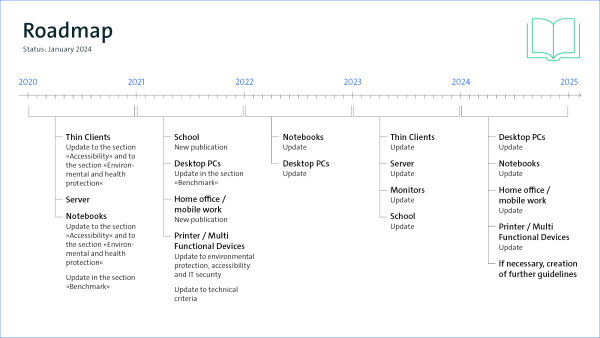
Guidelines
FAQ
Who is behind the guidelines for product-neutral procurement?
The guidelines are developed and published by Bitkom's expert committee on product-neutral tenders. Bitkom member companies and representatives of the public sector from the Bundeswehr Procurement Office, the BMI Procurement Office, the Federal Employment Agency and the Federal Environment Agency are active in the expert committee. The following companies are partners in the project: acer, AMD, Brother, EPSON, Fsas Technologies, HP, Intel, Konica Minolta, Lenovo and Lexmark.
How are the guidelines for product-neutral procurement developed?
The expert committee on product-neutral tenders draws up the guidelines in sub-working groups. Depending on the product group, representatives of manufacturers and procurers come together for this purpose. Adjustments are made by consensus in several meetings and coordination rounds.
Are the guidelines updated?
Yes, the guidelines are updated by the members of the expert committee approximately every two years. You can see the rough schedule for further updates in the diagram.
For which product groups are the guides published?
Guides are currently published for the following eight product groups: printers / multifunctional devices, home office, monitors, notebooks, PC desktop, school, server and thin clients.
Are the guidelines also available in other languages?
Yes, the guidelines are also published in German. You can find them here: ICT-Procurement: Guidelines | ICT-Procurement
What information do the guidelines provide?
The aim of the guidelines is to provide public contracting authorities at federal, state and local level with reliable and comprehensible assistance so that they can formulate their tenders for the procurement of ICT products in a product-neutral manner, i.e. without using protected brand names and without naming a specific manufacturer, but taking current technical standards into account. The core of the guideline is a list of technical criteria that can be used to describe and compare the devices themselves as well as the requirements for their operating environment and other features. In addition to the technical criteria, compliance with which guarantees the functionality of the devices for the procurement purpose, the guidelines also provide information on environmental protection, energy efficiency, IT security and accessibility. Although these issues are only partly required by law, they are becoming increasingly relevant in public administration.
Why do tenders have to be product-neutral?
In public procurement law, there is an obligation to treat suppliers and products offered equally. According to the legal basis, the object of procurement must be described according to objective and non-discriminatory criteria, i.e. product-neutral (see Section 97 GWB and Section 31 (6) VgV for EU-wide award procedures as well as Section 55 (1) BHO and Section 2 (2) UVgO for sub-threshold awards). Certain product designations or brand names may only be used in invitations to tender in justified exceptional cases if a sufficiently precise description is not possible using customary designations or general criteria.
In the case of public tenders, the contracting authority is also required to establish criteria for the product to be procured that allow a comparison between different offers and thus enable sufficient differentiation. A contracting authority is free to select the goods or services to be procured on the basis of which criteria, but the award criteria must be needs-based, product-neutral and transparent.
How can I join the expert committee and contribute to the development of the guidelines?
If you are interested, please contact the project managers Marc Danneberg and/or Esther Steverding.











